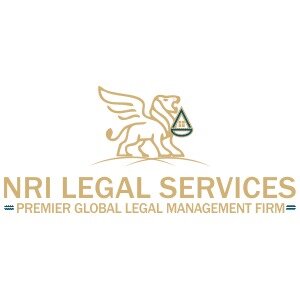Best Office Solutions Lawyers in Chandigarh
Share your needs with us, get contacted by law firms.
Free. Takes 2 min.
List of the best lawyers in Chandigarh, India
About Office Solutions Law in Chandigarh, India
Office Solutions in Chandigarh, India refers to the legal framework and regulations governing various aspects of office management and administration. This can include laws related to commercial leases, employment contracts, intellectual property, data protection, and other legal matters that arise in the context of operating an office or workplace. Understanding the legal landscape surrounding office solutions is crucial to ensure compliance, protect rights, and resolve any potential legal disputes.
Why You May Need a Lawyer
Legal situations related to office solutions can be complex and require specialized knowledge and expertise. Here are some common situations where you may need a lawyer:
- Negotiating or reviewing commercial leases or rental agreements for office space
- Drafting or reviewing employment contracts, non-disclosure agreements, or other employment-related documents
- Resolving disputes with employees or other parties related to workplace issues
- Protecting intellectual property rights, such as trademarks, copyrights, or patents
- Ensuring compliance with data protection and privacy laws
- Advising on legal aspects of office management, including health and safety regulations
Local Laws Overview
Office solutions in Chandigarh, India are governed by various local laws and regulations. Here is a summary of key aspects:
- Commercial Leases: The Indian Contract Act, 1872 governs commercial lease agreements, which outline the rights and obligations of landlords and tenants.
- Employment Laws: Offices must comply with various employment laws such as the Industrial Disputes Act, 1947 and the Payment of Wages Act, 1936. These laws protect the rights of employees and regulate aspects like working hours, wages, termination, and dispute resolution.
- Intellectual Property: The Indian Copyright Act, 1957, the Indian Patents Act, 1970, and the Indian Trademarks Act, 1999 govern the protection and registration of intellectual property rights.
- Data Protection: The Indian Personal Data Protection Bill is pending parliamentary approval and will regulate the collection, processing, and storage of personal data by offices and other entities.
Frequently Asked Questions
Q: How can I terminate an employment contract legally?
A: Employment contracts can be terminated legally by providing notice as per the terms of the contract or as prescribed by relevant employment laws. It is recommended to seek legal advice to ensure compliance with the specific requirements in your situation.
Q: What steps should I take to protect my office's intellectual property?
A: To protect your office's intellectual property, consider registering trademarks, copyrights, or patents as applicable. Additionally, ensure that employees sign appropriate confidentiality or non-disclosure agreements to safeguard sensitive information.
Q: What are my obligations regarding workplace health and safety?
A: Employers have a legal duty to provide a safe working environment for employees. This includes following health and safety regulations, conducting risk assessments, providing necessary training, and implementing safety measures.
Q: What are the key elements to include in a commercial lease agreement?
A: Commercial lease agreements should include the names of the parties involved, details of the property, lease term and conditions, rent payment terms, clauses on maintenance and repairs, and provisions for dispute resolution.
Q: What are my responsibilities regarding data protection as an office owner?
A: As an office owner, you must comply with applicable data protection laws and ensure that personal data is collected, processed, and stored securely. Implementing measures such as data access restrictions, encryption, and confidentiality policies can help protect personal data.
Additional Resources
If you need legal advice or more information regarding office solutions law in Chandigarh, India, consider reaching out to the following resources:
- Chandigarh State Legal Services Authority
- Chandigarh Bar Association
- Ministry of Corporate Affairs, Government of India
Next Steps
If you are facing legal issues or need assistance in office solutions matters, follow these steps:
- Identify the specific area of concern or legal problem related to office solutions.
- Research and gather relevant documents and information related to the issue.
- Consider consulting with a specialized lawyer with expertise in office solutions law in Chandigarh, India.
- Prepare any necessary documents or evidence for your initial consultation with the lawyer.
- During the initial consultation, discuss your legal issue or concern in detail and follow the lawyer's guidance on the best course of action.
- If required, proceed with legal representation and follow the lawyer's instructions for resolving the issue effectively.
Lawzana helps you find the best lawyers and law firms in Chandigarh through a curated and pre-screened list of qualified legal professionals. Our platform offers rankings and detailed profiles of attorneys and law firms, allowing you to compare based on practice areas, including Office Solutions, experience, and client feedback.
Each profile includes a description of the firm's areas of practice, client reviews, team members and partners, year of establishment, spoken languages, office locations, contact information, social media presence, and any published articles or resources. Most firms on our platform speak English and are experienced in both local and international legal matters.
Get a quote from top-rated law firms in Chandigarh, India — quickly, securely, and without unnecessary hassle.
Disclaimer:
The information provided on this page is for general informational purposes only and does not constitute legal advice. While we strive to ensure the accuracy and relevance of the content, legal information may change over time, and interpretations of the law can vary. You should always consult with a qualified legal professional for advice specific to your situation.
We disclaim all liability for actions taken or not taken based on the content of this page. If you believe any information is incorrect or outdated, please contact us, and we will review and update it where appropriate.









